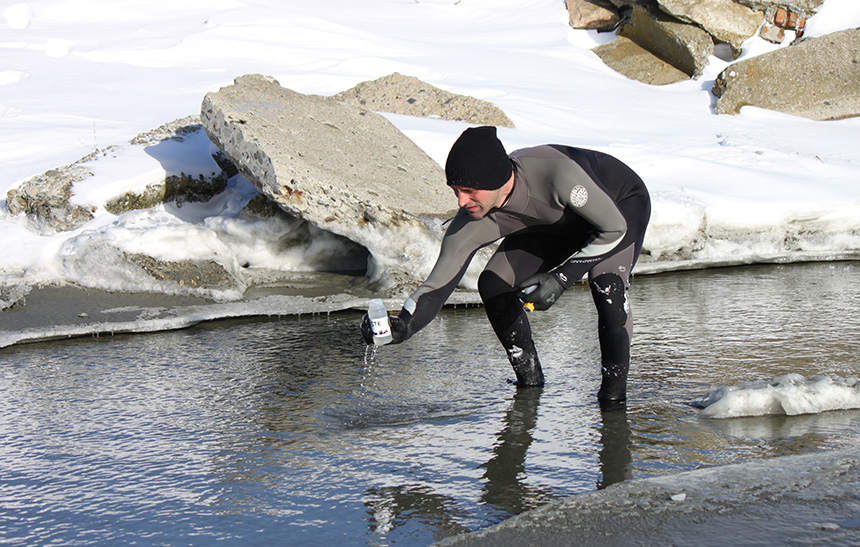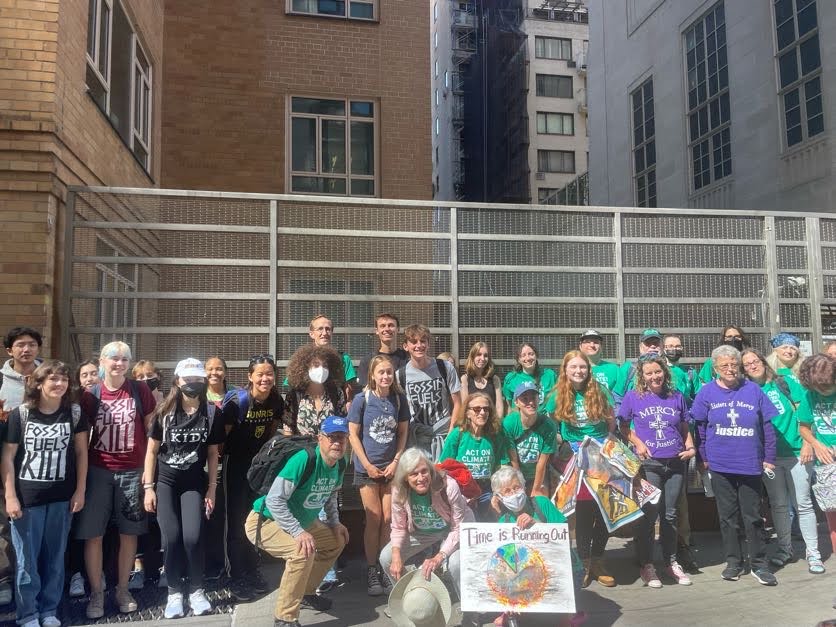Activists Rally Against School Siting Law Change
May 23, 2013
PROVIDENCE — Opponents of a push to repeal a state law enacted last year that prohibits the construction of schools on former industrial sites where there could be toxic vapor intrusion recently brought in a national figure to help make their point.
Lois Gibbs, executive director of the Virginia-based Center for Health, Environment & Justice, but better known for her role in uncovering the late-1970s environmental disaster now simply referred to as Love Canal, was the keynote speaker at a May 22 Environmental Justice League of Rhode Island/Clean Water Action rally on the steps of the Statehouse.
The 35-year environmental activist began her speech congratulating Rhode Island for enacting what she called the nation’s strongest law against building schools on former industrial and manufacturing sites. Gibbs said she has taken the Ocean State’s 2012 bill to Michigan, Massachusetts and New York to promote it as a model.
“You have a fabulous bill in place here, but in less than a year you’re already trying to tear it apart,” she said.
In June of last year, the General Assembly passed a bill that prohibits the construction of schools on industrial sites where there is potential for toxic vapors to seep into classrooms.
However, bills (H5617 and S520) were filed earlier this spring that would allow construction of schools on former industrial sites where there could be potential vapor intrusion.
The Rhode Island Mayoral Academies has pushed for the revision to eliminate the word “potential” so it can build a new charter school on a former manufacturing site at 1135 Roosevelt Ave. in Pawtucket. ecoRI News attempted to contact the charter school group through its website, but our e-mail went unanswered.
The owners of the 4.25-acre property, which used to be the site of a greeting card manufacturer, recently gave ecoRI News a tour of the property, allowing a reporter to take photos of the outside of the 59,000-square-foot building. The ownership group, which didn’t wish to be identified, has owned the property for nearly three years and has done basic maintenance and repair to keep the building up to code.
Several environmental studies have been conducted and reports written regarding the potential for contamination at 1135 Roosevelt Ave. For those who worked hard to the get the 2012 law passed, a few things stand out in those documents, such as the high trichloroethane (TCA) readings (pdf) in soil gas and the lack of any discussion (pdf) of those readings in the documents. They also are concerned that data in the studies, which go back to 1989 (pdf), show TCA contamination may have spread into the groundwater.
Voice of concern
Besides traveling from Virginia to speak at the afternoon rally and to meet with officials at the state Department of Environmental Management (DEM), Gibbs also has written letters in support of Rhode Island’s existing law to Rep. Art Handy, D-Cranston, chair of the House Committee on Environment and Natural Resources, and Sen. Susan Sosnowski, D-South Kingstown, chair of the Senate Committee on Environment and Agriculture.
Both letters expressed concern about the move to weaken Rhode Island’s school siting law. She also wrote that Rhode Island shouldn’t discard its precautionary approach to protecting schoolchildren.
During her speech at the Statehouse rally, she noted that vapor intrusion is what made her children sick three decades ago. It also what put her on a storied path of community activism.
“My kids got sick from vapor intrusion,” Gibbs said. “Of course, they didn’t use that terminology then. I was told there were eight chemicals in the air in your home.”
Gibbs’s involvement in environmental causes began in 1978, when she discovered that her son’s elementary school in Niagara Falls, N.Y., was built on a toxic waste dump. An investigation, spurred by her work, eventually revealed that the entire neighborhood, referred to as Love Canal, had been built on top of a dump.
By the time her daughter Melissa was 3, she was suffering from a rare blood disease. “She almost died from vapor intrusion,” Gibbs said. “She didn’t crawl on the dump, and we had municipal water.”
“Engineering controls do fail; as does regulatory oversight like remediating and monitoring,” Gibbs wrote in a letter to Handy dated April 9. “Love Canal is a perfect example of this. There was a belief that engineering controls and our very dense clay soils would keep everything in place. Clearly it didn’t.”
Under current Rhode Island law, a school can’t be built on a site where vapors from contaminants could potentially infiltrate a building. But if the law is amended as the two bills propose, it would permit the use of engineered controls, such “sub-slab” ventilation systems, that activists oppose as unreliable and costly to maintain.
“There’s potential of toxic exposure even with engineering solutions,” said Jamie Rhodes, director of Rhode Island Clean Water Action. “Ask any parent if they would want to send their child to that school. The answer would be no.”
Rhodes said the understanding of toxic vapors is a new science. “There’s no need to make kids guinea pigs,” he said. “We need to be protecting kids from toxic exposure.”
Maureen Martin of the Rhode Island Federation of Teachers and Health Professionals also spoke of the need to protect Rhode Island students. “If this law is gutted, there will be an impact on our children for decades to come,” she said. “We might not know for years if our children were put at risk and exposed to possible carcinogens.”
Categories
Join the Discussion
View CommentsRelated Stories
Your support keeps our reporters on the environmental beat.
Reader support is at the core of our nonprofit news model. Together, we can keep the environment in the headlines.
We use cookies to improve your experience and deliver personalized content. View Cookie Settings



